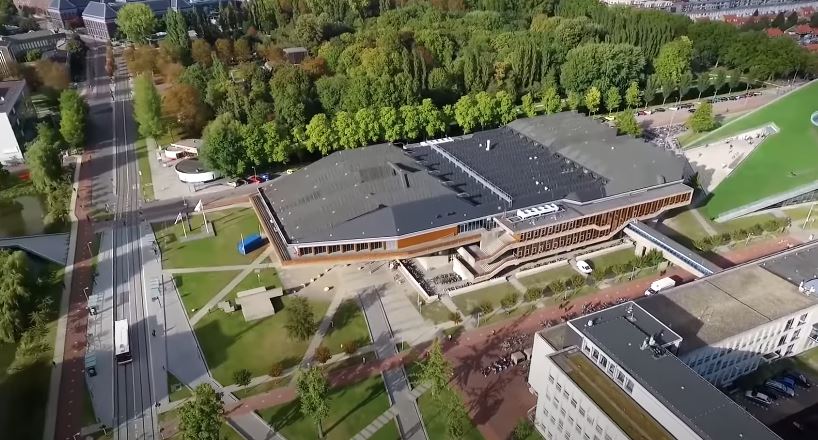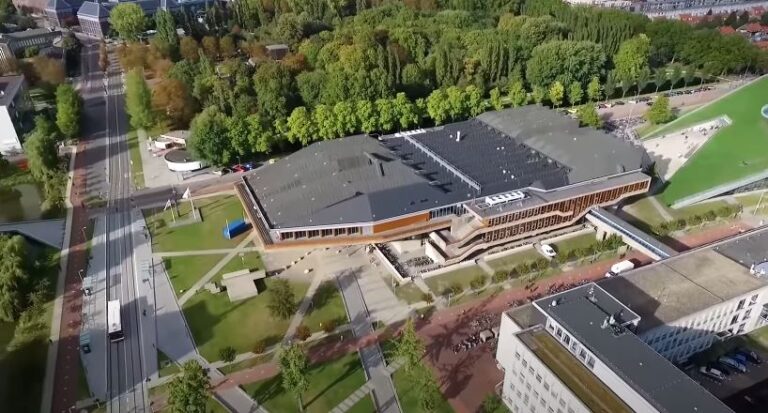The Netherlands-based Delft University of Technology (TU Delft) is a pioneer in technical education and innovation. It is the nation’s oldest and biggest public technical university, having been established in 1842. With its state-of-the-art facilities and innovative research, TU Delft has emerged as a major force in engineering, technology, and design. Being consistently ranked among the top engineering universities in the world, TU Delft is more than just a place to study; it is a launching pad for the next generation of global innovators. The university provides students with an environment where academic rigor meets real-world application, and the results speak for themselves.
TU Delft stands out for its steadfast dedication to multidisciplinary research that addresses some of the most important issues in society. TU Delft is at the forefront of developing sustainable energy solutions, improving aerospace technologies, and building smarter cities. World-renowned academics and researchers at the university are actively engaged in innovative, multidisciplinary work that could result in important, long-lasting effects. A notable illustration of this is TU Delft’s involvement with Brown University in the creation of next-generation lightsails for space exploration, a project that has the potential to revolutionize human space travel.
Bio Data for Professor Tim van der Hagen, Rector of TU Delft:
| Personal Information | Career Information | Professional Information |
|---|---|---|
| Name: Tim van der Hagen | Position: Rector | Affiliation: TU Delft |
| Date of Birth: 1960 | Industry: Academia, Engineering | Specialization: Technical Education, Innovation Leadership |
| Nationality: Dutch | Years of Experience: Over 30 years | Notable Contributions: Leading TU Delft to global prominence, advancing educational excellence |
TU Delft places an equally impressive emphasis on student learning as it does on research. The university provides a variety of undergraduate, graduate, and doctoral programs in disciplines like computer science, architecture, mechanical engineering, and aerospace engineering. The faculty is made up of some of the best minds in their fields, many of whom are leading authorities in their fields, and the instruction is demanding. In order to create a comprehensive and extremely useful educational experience, students are encouraged to apply what they have learned to real-world projects in addition to being taught theoretical concepts.
The TU Delft campus is the ideal fusion of contemporary amenities and historic charm. The university is located in the center of Delft, a city renowned for its extensive scientific and engineering heritage. There are over 27,000 students on campus, representing a diverse student body from around the world, many of whom are from various countries. Because TU Delft continuously partners with top universities and businesses around the world, its teaching and research reflect this global perspective. It’s about building cross-border connections, not just about learning.

The vast array of programs offered by TU Delft, which are intended to promote creativity and innovation in addition to imparting technical knowledge, is what makes it so adaptable. Pupils are urged to question accepted wisdom, think critically, and push the envelope of what is conceivable. Because of the university’s emphasis on producing well-rounded engineers and technologists, graduates leave with a plethora of real-world experience, which makes them highly desirable to employers in industries ranging from artificial intelligence to renewable energy.
The influence of TU Delft goes well beyond its boundaries. Its studies are known to have practical applications in a variety of domains. The university has made particularly innovative contributions to sustainable technology, for instance. TU Delft has played a significant role in the development of technologies intended to counteract climate change and is actively engaged in the study of renewable energy sources, such as wind and solar power. TU Delft is actively responding to the need for cleaner, more efficient energy systems around the world by working on projects like the Energy Transition program.
Delft University of Technology: Rankings and Recognition
| Rank | QS World University Rankings 2025 | Times Higher Education (THE) | QS Subject Rankings (2024) |
|---|---|---|---|
| Overall Rank | #49 | Top 50-70 globally | Engineering & Technology (#13) |
| Mechanical Engineering | #5 | #3 for Aerospace | Aerospace Engineering (#3) |
| Sustainability | #1 in Europe for Green University | Notably high for energy & tech research | Architecture (#3) |
TU Delft is a center for innovation and entrepreneurship. Through a variety of incubators and startup programs, the university helps aspiring business owners by giving students the tools and connections they need to turn their ideas into successful ventures. This spirit of entrepreneurship is evidence of TU Delft’s progressive approach, which gives students the freedom to create as well as learn. The outcomes speak for themselves: many startups that are currently flourishing internationally were born at TU Delft.
TU Delft’s dedication to diversity and inclusivity is arguably one of its most significant features. In order to give students from all backgrounds the chance to succeed, the university has made great progress. TU Delft is actively striving to create a more inclusive academic environment through its numerous outreach programs, scholarships, and initiatives aimed at increasing female representation in STEM fields. Its diverse faculty and student body demonstrate this dedication, guaranteeing that a variety of viewpoints are represented in the research lab and in the classroom.
